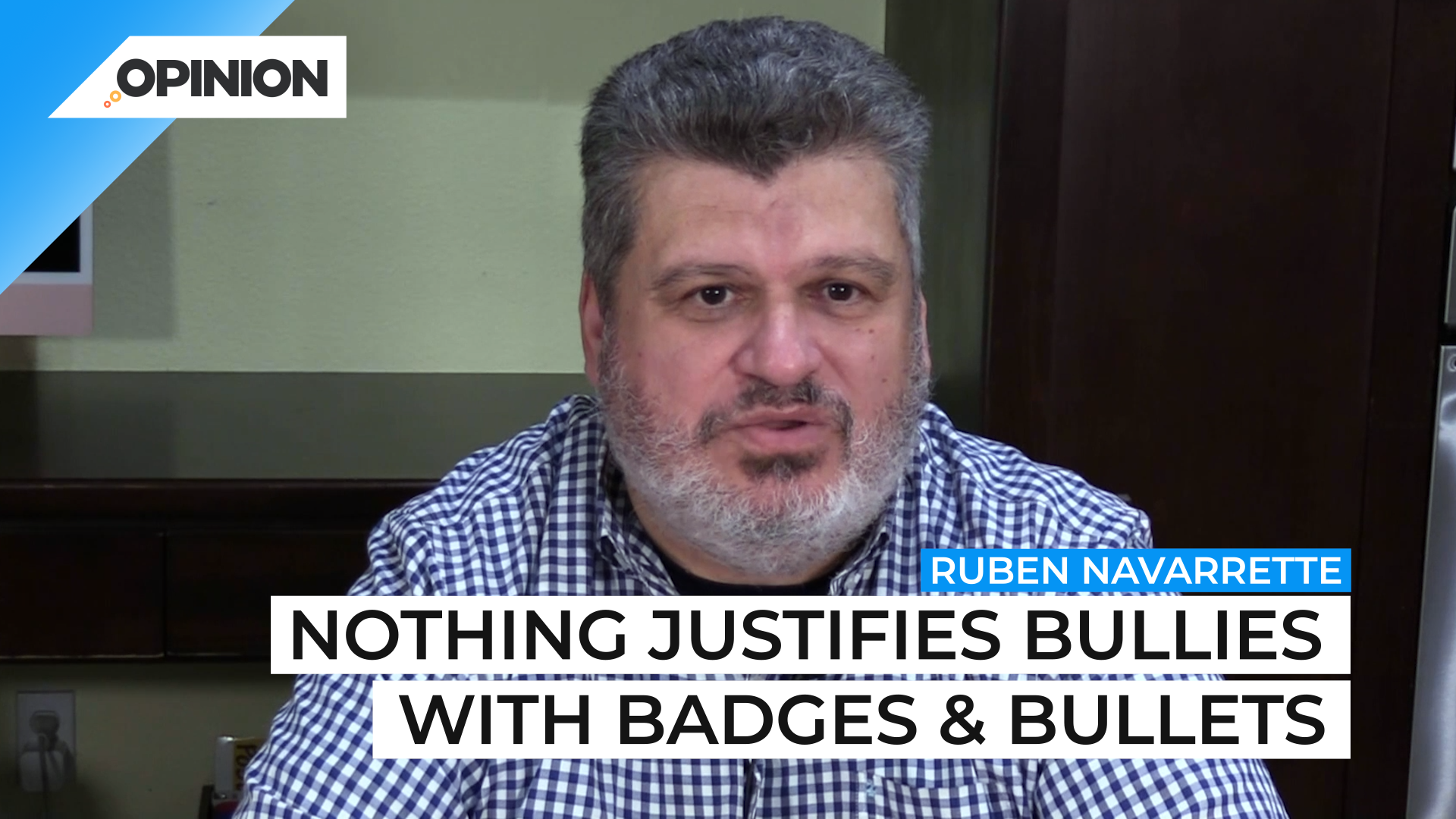
Commentary
-
Our commentary partners will help you reach your own conclusions on complex topics.
The grotesque and videotaped killing of 29 year old Tyre Nichols in Memphis, Tennessee has both a predictable quality to it, and a surprising one. The predictable comes from the Groundhog Day aspect of unarmed black men having what turned out to be deadly encounters with law enforcement officers.
The surprise has to do with the skin color of the officers who beat Nichols to death after a traffic stop. The death sentence was, it seemed, carried out for the sin of refusing to comply with the profanity-laced commands in exactly the way that the officers wanted, and for fleeing the scene. It’s true that Nichols tried to get away and run to his mother’s house. He ran like you and I would run if we were attacked by a pack of wolves. In the Memphis killing, there were five wolves, and they were all black. Just like the victim. Surprise.
Black Lives Matter. Hmm. Apparently the life of one black man didn’t matter at all to five black police officers who didn’t even call for an ambulance for nearly a half hour after the beating. Nichols, a young man who was someone’s father, someone’s son, died in a hospital bed three days later, from injuries sustained in the beating. It goes without saying, but let’s say it anyway. Nothing justifies bullies with badges and bullets preying on the weak and vulnerable to the point in some cases of actually taking people’s lives.
Nonetheless, to be fair, it turns out that sometimes people make bad decisions to resist arrest, to fight back against officers, to flee. And some of those cases it appears that officers get amped up and take matters into their own hands. At that moment, however, they stop being lawmen and become outlaws. If people commit a crime, arrest them, and let prosecutors, juries, and judges do the rest. That’s how the system is supposed to work, isn’t it?
Actually, I know for a fact that it is. My dad is a retired cop who was on the job for 37 years. I grew up around cops and lawyers and judges. I know how to tell good cops from bad ones. And I understand how bad cops can make life more difficult and more dangerous for the good ones. And no, it doesn’t all just boil down simply to skin color. Once upon a time, some of us – and I count myself in this group – may have believed in the fairy tale that black and brown cops would be on those occasions when they came in contact with their own kind, more empathetic, more humane, more restrained than many white cops have been over the generations. But I don’t know any Latinos and African-Americans who still believe that folly today.
Life teaches you otherwise. In fact, we know from experience that many black and brown cops are blue first. And this mentality too often leads those cops of color to be overly brutal with their own people, as if to somehow overcompensate and prove to their white partners and white bosses where their true allegiance lies. Brutality is often the order of the day, in fact, with Latino Border Patrol agents, who represent more than 50% of the ranks of the personnel in that agency. God help the poor migrant or refugee from Mexico or El Salvador or Venezuela named Sanchez or Gonzalez, who finds himself apprehended by a border patrol agent whose name tag reads Sanchez or Gonzalez. If that happens, amigos, que via con dios. Go with God.
Who knew back in the 1970s and 80s when activists were demanding that cities like Memphis, or Phoenix or Dallas recruit more black and brown police officers that we would decades later need so many couches, to allow those who were led into the club, the chance to unpack their personal demons. So these cops don’t become devils.
-
Trump’s misguided war on DEI
On his first day back in the White House, emboldened by a 2023 Supreme Court ruling banning affirmative action in college admissions, President Trump signed an executive order titled “Ending Radical and Wasteful Government DEI Programs and Preferencing.” The order claims that diversity, equity, and inclusion (DEI) initiatives have led to “immense” public waste and discrimination. Trump… -
With President Trump, learn to take the good with the bad
President Donald Trump’s second term has already been defined by sharp polarization, with Democrats warning of a constitutional crisis and the destruction of vital federal programs even as Republicans celebrate progress on key initiatives like ending DEI nationwide. Amidst the division, those voters who find themselves agreeing with some of Trump’s actions while disagreeing with… -
Trump’s tariff leverage stems from Mexico’s fears at home
President Donald Trump’s proposed 25% tariffs on Mexico have been delayed by a month after Mexican President Claudia Sheinbaum agreed to deploy an additional 10,000 National Guard members to the U.S.-Mexico border to “prevent the trafficking of drugs, particularly fentanyl.” Trump said, however, that Mexico’s efforts to stop illegal drugs were not enough to keep… -
Trump’s crackdown on migrants shows his tyranny
In final months of the Biden administration, migrant crossings over the U.S.-Mexico border had reached their lowest levels since 2020. However, President Donald Trump pledged to make cracking down on immigration a key issue in his second term. He already enacted a range of new executive policies intended to ramp up arrests and deportations of… -
When it comes to skills, immigrants have the right stuff
As the Trump administration launches its nationwide immigration crackdown, questions persist about its impact on the American labor market. High-skilled workers are often viewed as more essential, but the low-skilled workers most affected by mass deportations also play critical roles in various U.S. employment sectors. While they may not drive innovation directly, low-skilled workers perform…
Latest Opinions
-
 Getty Images
Getty Images
San Francisco DA Charges 11 in SNAP fraud scheme involving $4M
-
 Getty Images
Getty Images
California’s minimum wage increase led to job losses, higher prices: Study
-
 Getty Images
Getty Images
Appeals court blocks Arizona’s proof of citizenship law, cites voter suppression
-
 Getty Images
Getty Images
‘The free world needs a new leader’: Trump-Zelenskyy make jaws drop
-
 Getty Images
Getty Images
Justin Timberlake cancels final US show in Columbus minutes before showtime
Popular Opinions
-
In addition to the facts, we believe it’s vital to hear perspectives from all sides of the political spectrum.






